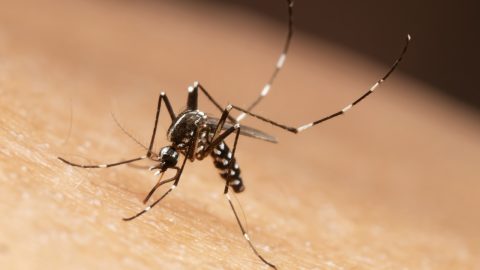
California Gov. Gavin Newsom has signed a bill that bans four food additives linked to health problems, the first time a state has outlawed chemicals allowed by the Food and Drug Administration.
Starting in 2027, California will prohibit red dye No. 3, potassium bromate, brominated vegetable oil and propylparaben after Newsom, a Democrat, signed Assembly Bill 418 into law Saturday. All four ingredients have been made illegal in the European Union and some other parts of the world, but they can be found in commonly sold items in the U.S., such as some brands of orange soda, icing, hamburger rolls, candies and processed foods.
The chemicals have been associated with issues from hyperactivity in children to cancer.
Assemblymember Jesse Gabriel, who introduced the bill with Assemblymember Buffy Wicks, a fellow Democrat, said he was “elated and deeply grateful” to Newsom for signing it.
“The state is stepping up to protect people,” he said in a phone interview Tuesday.
The law won’t result in any foods’ being banned from shelves, Gabriel said. Instead, he said, food companies will be required to make “really minor” modifications using alternative ingredients they already use overseas.
“We have incredible confidence that consumers are still going to be able to enjoy all the products that we know and love here in the United States, just without those harmful chemicals,” he said.
The law is likely to have a ripple effect across the country, according to the Environmental Working Group, a research and advocacy health organization that backed the bill. Food and drink manufacturers are unlikely to make versions of their products just for California, and they could tweak the ingredient lists for as many as 12,000 products sold nationwide, the organization estimated, based on its food database.
What the additives are used for
The four additives serve a variety of purposes — from making food look more enticing to helping preserve it longer.
The FDA has long banned red dye No. 3 from cosmetics because studies show it causes cancer in lab animals in high doses. Yet the artificial color, which is derived from petroleum, is still used to give foods and medicines a bright red hue. Studies have also indicated that artificial food dyes are associated with behavioral problems in children, including hyperactivity; the FDA maintains there is no evidence of a causal relationship for children in the general population who haven’t been diagnosed with behavioral disorders.
Potassium bromate, a flour additive that helps bread rise higher, has also been linked to cancer in lab animals.
Brominated vegetable oil, an emulsifier in citrus drinks, has been tied to behavioral and reproductive issues in lab animals, among other health concerns.
And propylparaben, a preservative in cosmetics and food, is believed to mimic estrogen, potentially acting as an endocrine disruptor.
Newsom said in a statement that delaying implementing the law until 2027 should give brands adequate time to revise their recipes and that it was a positive step until the FDA “establishes national updated safety levels for these additives.”
The FDA says it routinely monitors scientific information on ingredients. In an email, a spokesperson said the agency “evaluates and regulates ingredients added to food to ensure that the authorized use of these ingredients is safe. This includes the four ingredients included in the California bill.”
The FDA stands by the use of the ingredients, the spokesperson said, though after it reviewed data published last year, it is working on a proposed rule to remove the authorization of brominated vegetable oil.
Such reviews can take years, Gabriel said, adding that he hoped the new law would prompt faster change.
“The first and foremost objective is to protect kids and families and consumers in the state of California,” he said. “But a secondary objective here was to make a point and to send a message to the FDA and to folks in Washington, D.C., about just how badly the FDA process is broken.”
The National Confectioners Association, a trade association for candymakers, slammed the California law.
“Governor Newsom’s approval of this bill will undermine consumer confidence and create confusion around food safety,” the group said in a statement. “This law replaces a uniform national food safety system with a patchwork of inconsistent state requirements created by legislative fiat that will increase food costs.”










Recent Comments